Crushing cells test is a test method used to evaluate the safety and structural integrity of batteries when subjected to mechanical squeezing or compression. This test simulates the squeezing conditions that batteries may experience during actual use, such as vehicle collisions, drops, or other forms of mechanical impact. The purpose of the extrusion test is to ensure that the battery does not experience short circuits, fires, or explosions when subjected to such mechanical stress, thus ensuring user safety.
Crushing cells test typically involves applying a specific force to the battery using specialized equipment to induce deformation. During the test, parameters such as voltage, current, and temperature of the battery are monitored to evaluate its performance changes during the extrusion process. Based on the battery's response, it can be determined whether the battery's safety performance meets the required standards.
In battery testing standards, Crushing cells test is an important aspect as it reveals the thermal runaway characteristics and mechanisms of batteries under mechanical squeezing, as well as the influence of separator materials on triggering thermal runaway during extrusion. Through these tests, researchers and manufacturers can better understand the safety performance of batteries and take appropriate measures to improve their safety.
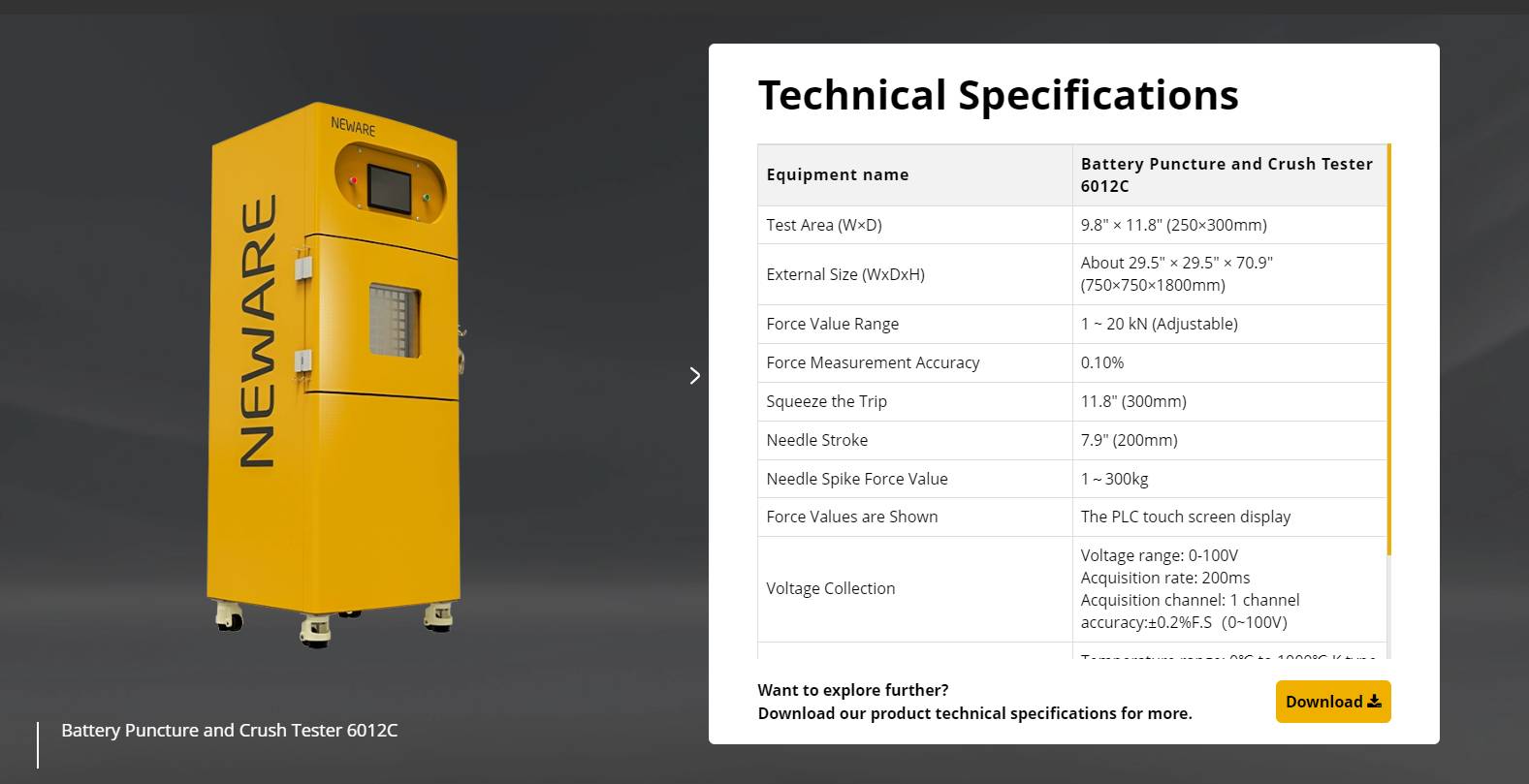
NEWARE Battery Puncture and Crush Tester 6012C Simulate the squeezing or pricking of various batteries during use, transportation, and storage.Suitable for 30Ah or less 3C battery testing, driven by a hybrid servo motor with a force range of 1~20kN. It comes standard with battery squeezing heads and needle clamping fixtures, facilitating squeezing and needle testing of various batteries. The squeezing area is >20cm², and the needle speed is adjustable from 0.1~40mm/s.
Test area (W×D):9.8" × 11.8" (250×300mm)
External size (WxDxH):About 29.5" × 29.5" × 70.9" (750×750×1800mm)
Force value range:1 ~ 20 kN (Adjustable)
Force measurement accuracy:0.10%
Needle spike force value:1~300kg
Utilizing a PLC touch screen display, the operation is clear and easy to understand, enabling convenient control. The extrusion/puncture time, extrusion pressure, and needle speed can all be adjusted and displayed in real-time, allowing for comprehensive monitoring of the experimental process. This is a truly advanced battery testing device that helps you effortlessly perform various tests and preserve battery performance. It is equipped with a high-precision pressure sensor that offers measurement accuracy up to 1‰, providing accurate data feedback for the experiment. With closed-loop automatic control, it greatly enhances experimental precision and reliability, thereby improving overall experimental accuracy.
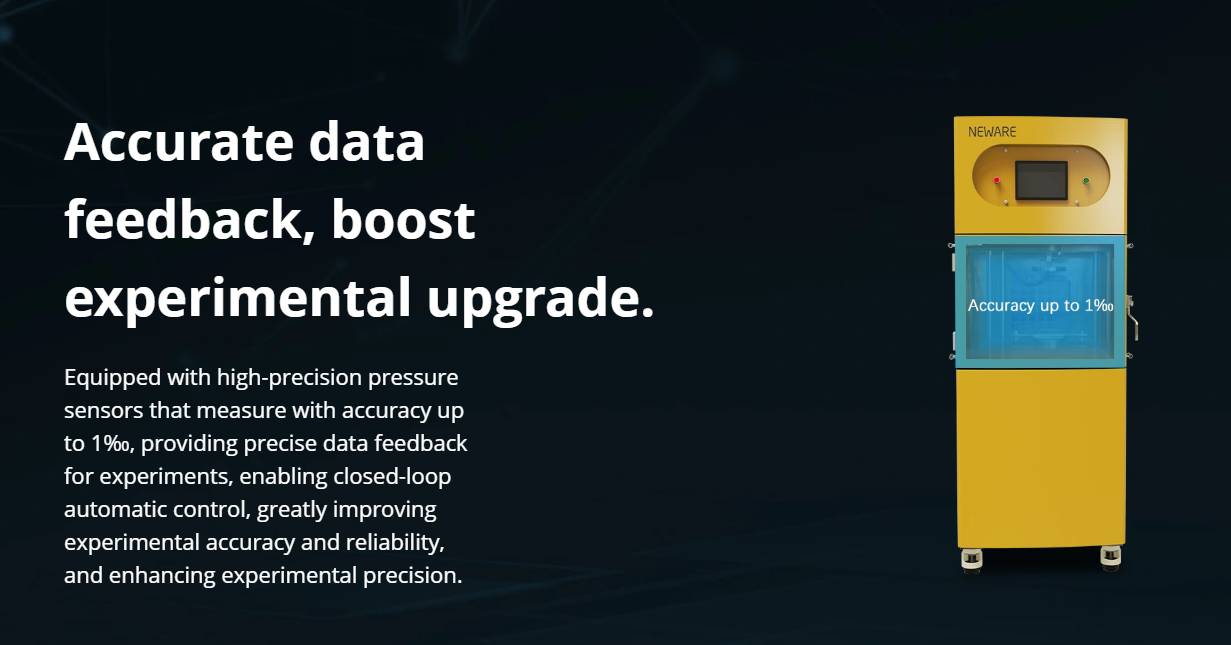
Extrusion function: Driven by a hybrid servo motor, equipped with battery extrusion head and puncture fixture, with a force range of 1~20kN and extrusion area >20cm. It can tightly connect the positive and negative terminals of the battery with other components, ensuring a strong and reliable internal connection of the battery.
Puncture function: Puncture speed adjustable from 0.1 to 40mm/s. By controlling the depth and speed of the needle, the puncture function can simulate external puncture or damage to the battery, used to test the battery's safety performance.
Automation: The NEWARE Battery Puncture and Crush Tester features closed-loop automated control. Users can preset parameters and process flow, and the machine will automatically perform extrusion and puncture operations, improving production efficiency and reducing manual intervention.
Data recording and analysis: It has data recording and analysis capabilities. It can record the parameters, results, and time of each operation, and generate reports for users to analyze and evaluate the battery's performance.
These features are crucial in practical applications, especially in the battery production and research fields. They can enhance accuracy, standardization, and efficiency of operations, while also ensuring the quality and safety performance of battery products.
The battery extrusion and puncture integrated machine is suitable for simulating situations where various types of batteries undergo squeezing and puncturing during use, transportation, storage, or handling of household waste.
The rules for the extrusion test direction are as follows.
1.For cylindrical batteries, the longitudinal axis of the battery should be parallel to the two plates of the extrusion device during the battery extrusion.
2.For square and pouch batteries, only the width surface of the battery should be subjected to squeezing.
3.For coin or button-shaped batteries, the battery should be squeezed with its upper and lower surfaces parallel to the plates.
Please ensure that each battery is only subjected to one extrusion, and it is considered qualified if the battery does not explode or catch fire.
When conducting Crushing cells test, several important considerations should be taken into account. Here are the key points to keep in mind.
Safety precautions: Ensure that proper safety measures are in place, including personal protective equipment (PPE) for the testing personnel. This may include safety glasses, gloves, lab coats, and other necessary gear to protect against potential hazards.
Test environment: Conduct the Crushing cells test in a controlled environment, such as a testing laboratory or a designated area with proper ventilation. This helps mitigate any potential risks associated with gas emissions or thermal events during the test.
Equipment calibration: Before conducting the test, calibrate and verify the accuracy of the testing equipment, including the force sensors, displacement measurement devices, and temperature sensors. This ensures reliable and accurate test results.
Test parameters: Define and adhere to the specific test parameters, such as the applied force or pressure, deformation rate, and temperature conditions. These parameters should be based on relevant standards or specifications, ensuring consistency and comparability of the test results.
Sample preparation: Prepare the battery samples following the recommended guidelines, including the size, shape, and orientation of the battery during testing. Ensure that the samples are representative of the actual batteries used in practical applications.
Data monitoring: Continuously monitor and record key parameters during the extrusion test, such as voltage, current, temperature, and deformation. This allows for a comprehensive analysis of the battery's behavior and performance under mechanical stress.
Failure analysis: In the event of a battery failure or thermal event during the extrusion test, conduct a thorough analysis to understand the cause and mechanisms involved. This analysis helps identify potential vulnerabilities or design flaws that may compromise the safety of the battery.
Reporting and documentation: Document all test procedures, observations, and results accurately and comprehensively. This documentation serves as a reference for future analyses, comparisons, and improvements in battery design and safety.
By addressing these considerations, researchers and manufacturers can conduct Crushing cells test effectively and obtain valuable insights into the safety and structural integrity of batteries under mechanical stress.
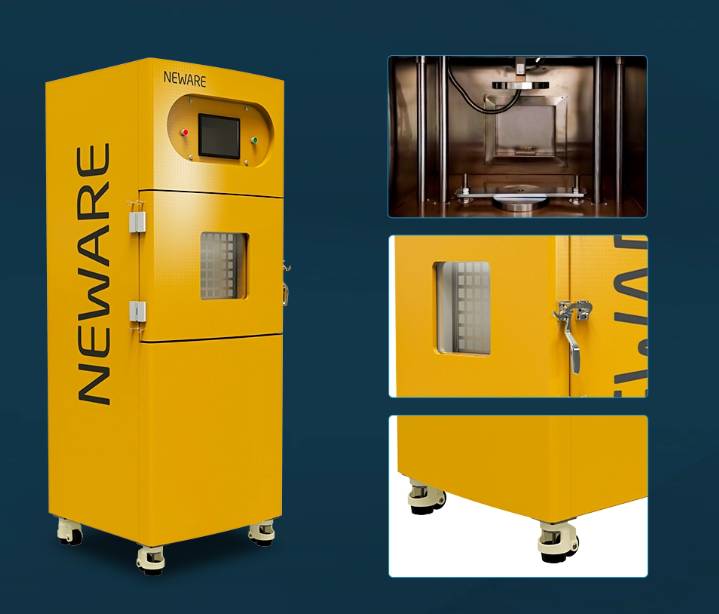
The Battery Puncture and Crush Tester is safe to use under normal conditions, but there may be certain safety risks in specific situations. To ensure the safety of operators and the equipment, the NEWARE Battery Puncture and Crush Tester is equipped with various safety features.
Explosion proof measures: High-quality cold-rolled steel plate, SUS304 stainless steel inner wall, explosion-proof cold-drawn door lock with added explosion-proof chain, ensuring compliance with explosion-proof requirements and implementing corresponding explosion-proof measures.
Protective safety door: A door limit switch that cuts off power when opened, ensuring no accidental operations and ensuring personnel safety.
Electrical safety: Ensuring that the electrical components of the equipment comply with safety standards and avoiding short circuits and electrical malfunctions during use. Regular inspections should be conducted to ensure the proper functioning of electrical components.
Independent pressure relief and exhaust system: An automatic explosion-proof pressure relief vent is installed on the back of the enclosure, which automatically releases pressure when it exceeds a certain level. Additionally, an exhaust fan is connected, and an exhaust duct is provided to connect to a powerful laboratory ventilation system if necessary.
Overall, the Battery Puncture and Crush Tester is safe when used and maintained properly. However, strict adherence to safety operating procedures is necessary. All operators should receive relevant operational and safety training, understand the equipment's usage, safety precautions, and emergency procedures. They should also be equipped with the necessary safety protective equipment. Regular equipment inspections and maintenance should be carried out to ensure the safety of operators and the equipment.



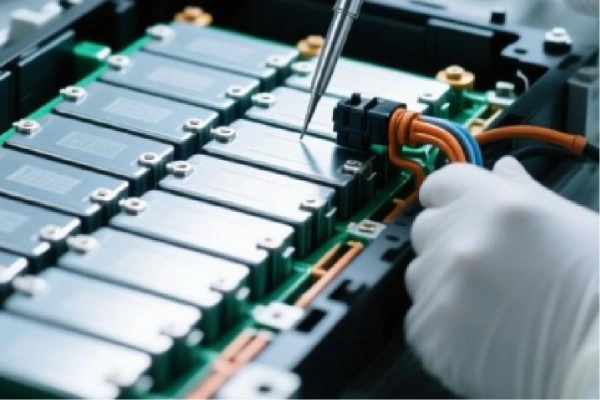
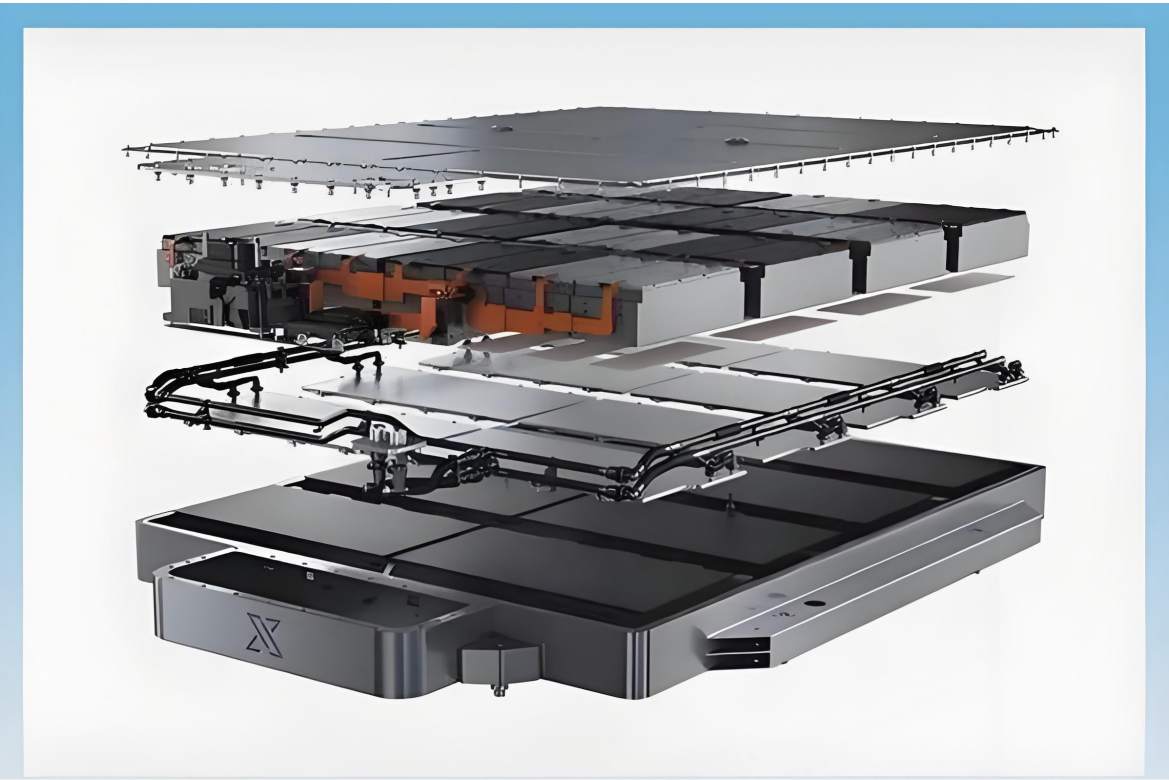


Technology
December 04, 2025
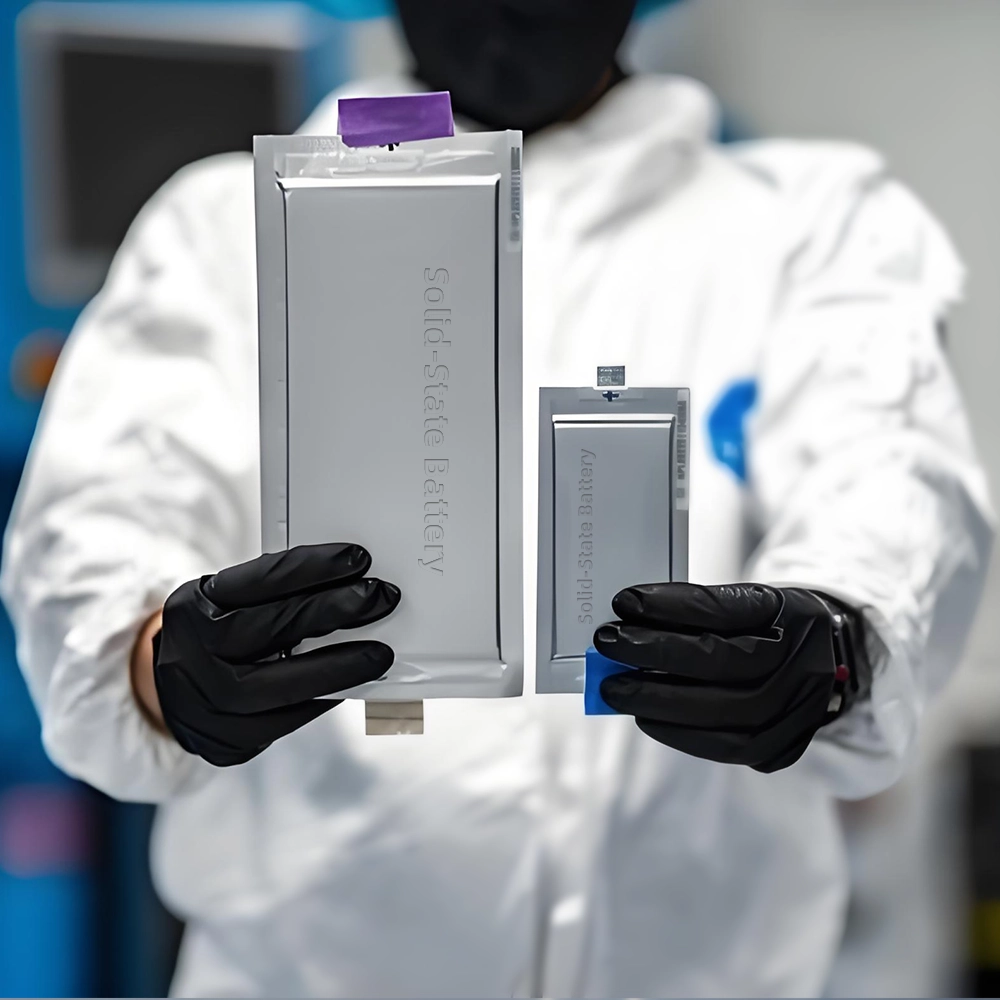
The lab focuses on solid-state battery research to overcome traditional lithium batteries' safety and energy density issues, supporting environmental sustainability. It develops innovative solid-state electrolytes, refines electrode materials, and investigates ion transfer and interface stability to revolutionize battery technology.

The electric vehicle battery industry is rapidly developing, focusing on technological innovation, market competition, and sustainability. Research hotspots include solid-state batteries, new types of electrolytes, BMS optimization, and recycling technologies. The environmental adaptability, safety, and economic viability of batteries are key research areas, and the industry is expected to undergo more innovation and transformation.
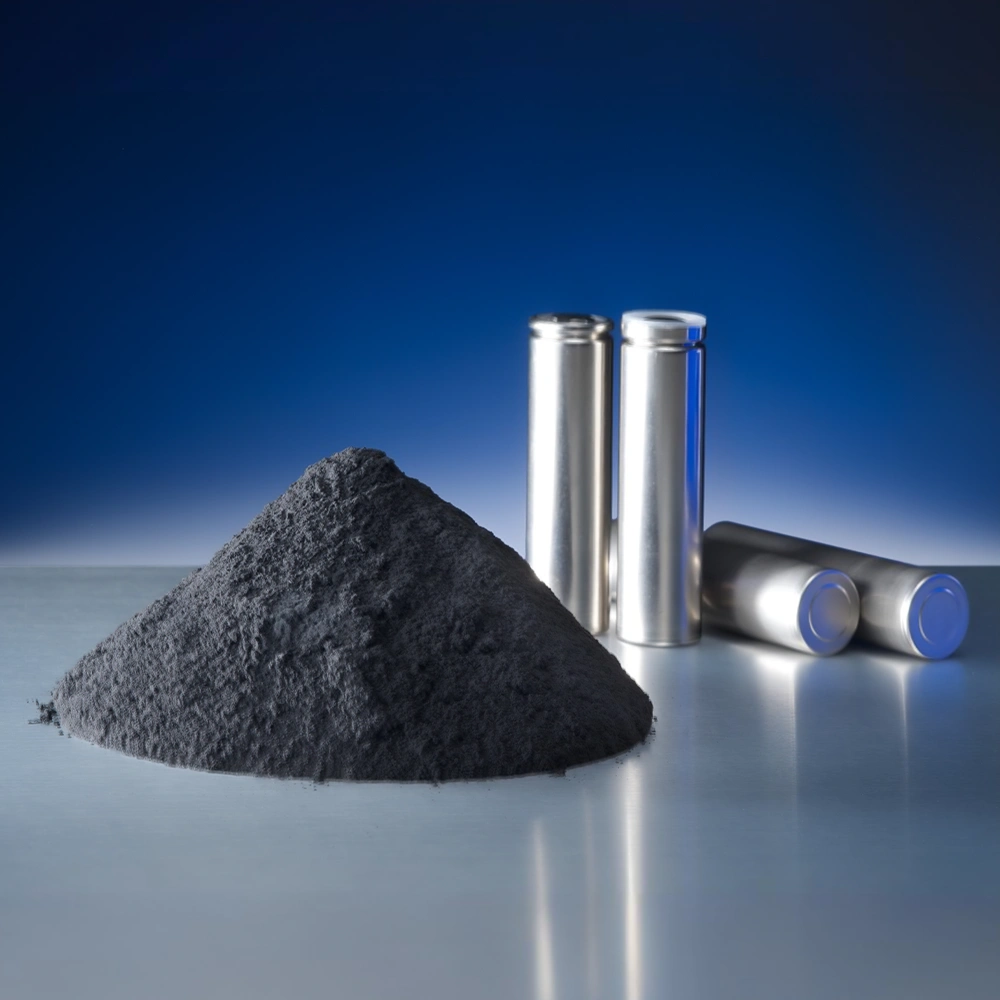
We specialize in battery preparation technology research, focusing on overcoming existing energy storage challenges by innovating in electrode materials, battery chemistry, and manufacturing processes to improve performance, enhance safety, and reduce costs. Sustainability and recycling technologies for batteries are also emphasized to mitigate environmental impacts and foster the growth of green energy.